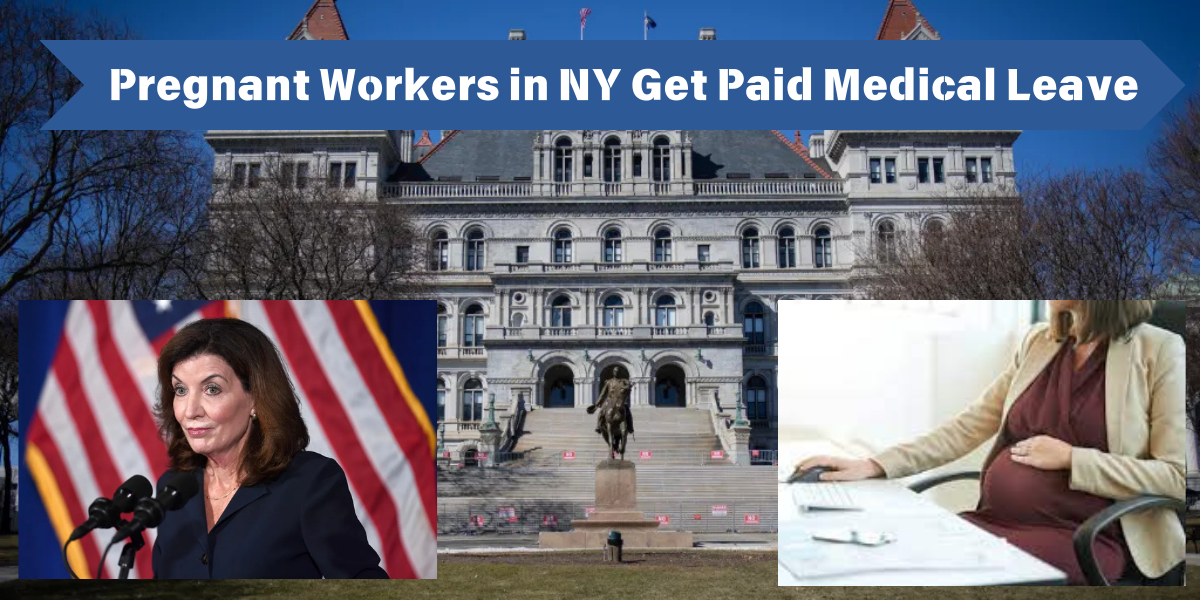ALBANY, NY (latestsports) — Pregnant workers in New York can now take at least 20 hours of paid medical leave for prenatal appointments under a groundbreaking new law that took effect Wednesday. The policy, championed by Gov. Kathy Hochul, makes New York the first state in the nation to offer paid leave specifically for prenatal care.
The law ensures that all pregnant employees in the private sector can schedule paid time off for medical appointments related to pregnancy. This includes visits for physical exams, care during the final stages of pregnancy, fertility treatments, and other essential health check-ups.
Governor Hochul emphasized the importance of the new policy, highlighting its role in supporting maternal health and reducing maternal and infant mortality rates across the state.
“No pregnant woman in New York should be forced to choose between a paycheck and a check-up,” Hochul said in a recent statement. “This policy underscores our commitment to ensuring that pregnant workers have the resources and support they need for a healthy pregnancy.”
Key Features of the Law
- Eligibility: All pregnant employees in the private sector are entitled to the leave, regardless of their employer’s existing paid sick leave policies.
- Scope of Leave: The law covers medical appointments such as routine check-ups, advanced care during pregnancy, and even fertility treatments.
- Privacy Protections: Employers are prohibited from requesting medical information when workers request paid leave under this law.
- Separate from Other Leave: The policy is distinct from other types of paid sick leave provided by employers, ensuring additional support without affecting existing benefits.
- Exclusions: Spouses of pregnant individuals are not eligible for this paid leave.
A Milestone for Maternal Health
The initiative is part of a broader effort to improve outcomes for pregnant women and their babies in New York. Maternal and infant mortality rates, particularly among vulnerable populations, have been a growing concern. Advocates believe that removing barriers to prenatal care, such as taking unpaid time off work, can lead to healthier pregnancies and better long-term health for both mothers and infants.
Hochul made the prenatal leave policy a key part of her agenda during the last legislative session, arguing that New York must lead the way in workplace policies that support families and public health.
Employer Compliance
Employers across the state will need to adjust to the new requirements to ensure compliance with the law. With no allowance for requesting medical documentation, businesses are expected to trust and accommodate employees requesting prenatal leave.
The implementation of this policy marks a significant step in the state’s efforts to support working families and address health disparities. As the first state to adopt such a measure, New York sets a precedent that could inspire similar policies in other states.




